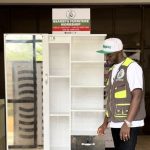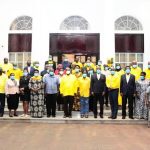The Kampala Capital City Authority (KCCA) has made remarkable progress in transforming the city into a cleaner, more resilient, and inclusive urban center. Here are some of the key highlights from their recent press statement:
1. Waste Management Revolution
– A 230-hectare modern Integrated Waste Management Facility in Buyala, Mpigi, has been secured to replace the overburdened Kiteezi landfill.
– Kiteezi landfill is being decommissioned, with a USD 1 million grant from Japan and UN Habitat mitigating immediate risks like gas emissions and leachate.
– 4,032 vulnerable residentswere employed under a reservation scheme to keep the city clean, with all payments up to date.
– Community cleanups and a “No Litter” campaign are changing mindsets, promoting recycling, and enforcing responsible waste disposal.
2. Road and Infrastructure Upgrades
– Over 70 km of city roads rehabilitated, including Old Mubende Road, Wamala Road, and major bridges like Kayemba Bridge (95% complete).
– 19.85 km of new roads launched under the Greater Kampala Metropolitan Area Urban Development Program (GKMA-UDP), improving connectivity across all five divisions.
– Traffic Control Center (TCC) at City Hall will soon manage traffic in real time, reducing congestion.
– 27 junctions signalized, and five roundabouts removed to enhance traffic flow.
3. Flood Mitigation and Drainage Improvements
– De-silting and maintenanceof drainage channels in flood-prone areas like Bwaise, Kansanga, and Lubigi have reduced flooding.
– 47.7 km of new drainage improvements planned for FY 2025/26, along with 500 manhole covers and culvert upgrades.
4. Improved Public Sanitation
– 59 new public toilets constructed in schools, markets, and police stations, with 14 renovated, ensuring dignified sanitation for thousands.
– School infrastructure upgrades, including new classroom blocks at Nakivubo and Munyonyo Primary Schools, and asbestos removal in Kololo SS and Kyambogo College School.
5. Protecting Kampala’s Children
– 208 street-connected children rescued and 684 reintegrated into schools in Napak District, breaking cycles of exploitation.
6. Youth and Economic Empowerment
– Over 600 youth trained in vocational skills (photography, graphic design, bakery, hairdressing), with 125 receiving startup kits.
– UGX 9.8 billion disbursed under the Parish Development Model (PDM), supporting 9,065 beneficiaries in agriculture and small businesses.
7. Greening Kampala
– 8,500 trees planted across the city, with plans to expand green corridors and monitor air quality.
– Urban Forest Management Plan (2023–2029) launched to combat climate change.
8. Revenue Growth and Service Delivery
– UGX 127.6 billion collectedin local revenue (106% of target), with UGX 132.4 billion targeted for FY 2025/26.
– 29,095 new taxpayers registered, boosting funding for city projects.
9. Upcoming Projects for FY 2025/26
– Completion of key roads(Salama, Sir Apollo Kaggwa, Portbell).
– 123 km of pedestrian and cycling lanes to be installed.
– Construction of Ggaba and Usafi markets to create more workspaces.
– Expansion of health services, including a new maternity ward at Kiswa Health Centre.
10. Kampala City Festival 2025
The much-anticipated Kampala City Festivalreturns, celebrating culture, innovation, and community spirit. The launch is set for 6th August 2025 at City Hall.
A Call for Collective Responsibility
KCCA acknowledges challenges like funding gaps and wetland encroachment but remains committed to partnerships and smarter planning. As Executive Director Sharifah Buzeki stated:
“It is the responsibility of each one of us to make Kampala a livable city.”
These efforts demonstrate KCCA’s dedication to transforming Kampala into a modern, resilient, and inclusive city—worthy of celebration and support from all residents.























